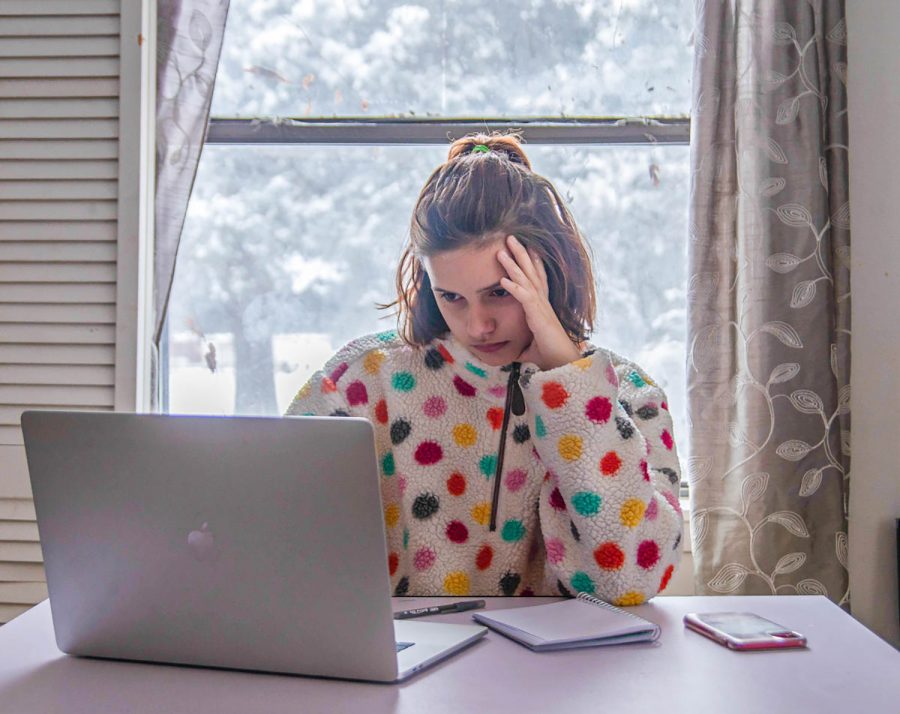Silencing snow days
Remote learning’s threat to school cancellations
Photo by Braylen Garren
A student sits at home while a snowy scenery fills the outside of her window. Many students have discussed the importance of having snow days that consist of playing outdoors rather than learning from home.
February 15, 2021
Snow day. It’s a phrase that conjures up nostalgic memories of running around the backyard as freshly knitted scarves trail behind us in the wind. It’s been a timeless tradition in schools since the birth of education as we know it.
However, as we adjust to online learning as a means of COVID prevention, snow days may soon be “snow” more. Thirty-nine percent of principals, and those in similar positions, have traded in snow days for online learning days; 32% of officials are debating going down the same route.
Luckily, bad weather days at the moment do not mean business as usual for us, but they may one day. This idea does more than not let students have a break from time to time. It neglects students’ emotional, physical and intellectual well being for the sake of making money and feigning productivity.
Principals may make the case that bad weather days would put students and teachers behind schedule and that temporary online learning will keep them continually educated. This is only true if students learn anything during that one day of remote learning.
Anyone who has learned virtually this year knows the option is far from a free 100. Solitary education, when the school system has made you accustomed to traditional classrooms, takes patience, determination and the self control to not grab your phone the minute you turn off your zoom camera.
To force every student to learn this way for a day for reasons other than the pandemic shows schools may not always keep students’ best interest in mind. Whether they admit it or not, at least some motivation from the anti-snow day movement is monetary. No school means no money. No money means no funding, which can lead to the cancellation of our beloved extracurriculars and electives.
This sounds like a simple snow day could send our school into a downward spiral. And it could. If we weren’t talking about Texas, we have a couple snow days a year at best. In fact, our one bad weather day was the fault of, not winter weather, but a hurricane in Houston that we only knew about from the news.
This sudden loss of school day structure may also make students too frustrated to continue their work. We would not feel enlightened or educated. We would feel like sad children hunched up against a computer screen Googling the answers to the worksheet our teacher sent out over Google Classroom. Because that’s what we are.
If we grow accustomed to online learning, think about what this could mean for the next generation.
American school systems would birth a population of students that will never know the joy of waking up at 6 a.m. only to be informed that they can sleep the entire day away. There could one day be eight-year-olds that will never get the chance to throw snowballs on random Tuesday afternoons while thinking, “I’m so glad I’m not memorizing multiplication tables right now.” Although moments like this seem unnecessary to adults, it’s snow days that keep all grade levels looking forward to winter.
A snowflake freely falling down to our East Texas town is a rarity to be cherished by students and teachers alike. Please, for the love of students’ COVID-induced declining mental health, when the roads are too dangerous to drive to school, resist the urge to make education online.
















